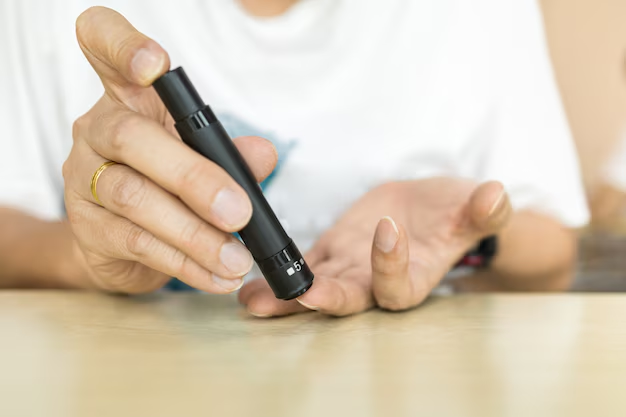Your Guide to How Do I Know If I Have Type 2 Diabetes
What You Get:
Free Guide
Free, helpful information about Diabetes FAQ and related How Do I Know If I Have Type 2 Diabetes topics.
Helpful Information
Get clear and easy-to-understand details about How Do I Know If I Have Type 2 Diabetes topics and resources.
Personalized Offers
Answer a few optional questions to receive offers or information related to Diabetes FAQ. The survey is optional and not required to access your free guide.
Curious if You Have Type 2 Diabetes? Here’s How to Tell
Type 2 diabetes is a common yet often hidden condition that can initially go unnoticed. Aware of the potential health implications, more people are rightfully wondering how to recognize its symptoms early. Understanding the signs and knowing when to seek medical advice can make a tremendous difference in managing the disease effectively.
Recognizing the Symptoms
Identifying Type 2 diabetes symptoms early can play a crucial role in managing your health. Here are some key signs to be aware of:
- Increased Thirst and Urination: A sudden increase in the need to drink and urinate might indicate your body is not using insulin properly.
- Unexplained Weight Loss: Losing weight without changing your diet or lifestyle could be a red flag.
- Fatigue: Feeling more tired than usual, even after a good night's sleep, might be connected to blood sugar imbalances.
- Blurred Vision: Fluctuating blood sugar levels can cause liquids to be pulled from body tissues, including eye lenses, which may affect your vision.
- Slow-Healing Sores or Frequent Infections: When blood glucose is high, it can impair blood circulation and your body’s ability to heal.
When to See a Doctor
If you notice these symptoms persisting, it's important to consult with a healthcare provider. They will likely recommend tests such as:
- A1C Test: Measures average blood sugar levels over two to three months. An A1C of 6.5% or higher on two separate tests indicates diabetes.
- Fasting Blood Sugar Test: Measures blood sugar after an overnight fast. A reading of 126 mg/dL or higher suggests diabetes.
- Oral Glucose Tolerance Test: Often used in pregnant women, this test involves fasting, consuming a sugary drink, and then checking sugar levels.
Understanding the Risk Factors
Several factors can increase the likelihood of developing Type 2 diabetes:
- Family History: A strong familial link, suggesting genetic predisposition.
- Age: Risk increases after age 45, though more younger individuals are being affected.
- Weight: Being overweight is a significant risk factor as it leads to insulin resistance.
- Nutrition and Physical Activity: A sedentary lifestyle coupled with poor diet enhances the chance of developing diabetes.
Taking Proactive Steps
Addressing lifestyle factors such as diet, exercise, and weight management can significantly lower your risk. But even beyond personal actions, other supports and resources are available to help you manage or prevent diabetes.
Financial and Educational Resources for Managing Diabetes
Navigating the costs associated with diabetes management can be challenging. Fortunately, there are programs and resources designed to lessen the burden and provide education for better management:
- Medicaid and Medicare: Offers programs to cover diabetes testing supplies and medication.
- Free Health Clinics: Many cities offer clinics that provide free or low-cost health services.
- Pharmaceutical Patient Assistance Programs: Some medication manufacturers provide their drugs at reduced prices for qualifying patients.
- Credit Counseling Services: Offers financial planning and debt management options which might help you allocate costs towards diabetes management.
- Educational Workshops: Many community health organizations provide workshops on managing diabetes through diet and exercise.
Empowering yourself with the right information and support can make a significant difference in controlling diabetes effectively and living a healthier life. Below is a list of programs and opportunities that may provide the assistance you need:
🔹 Medicaid and Medicare Diabetes Programs
💊 Pharmaceutical Assistance: Manufacturer discounts for medications
🏥 Free Health Services: Access clinics for no-cost check-ups
💼 Credit Counseling: Financial planning support
📚 Community Education: Workshops and resources to improve diabetes management
What You Get:
Free Diabetes FAQ Guide
Free, helpful information about How Do I Know If I Have Type 2 Diabetes and related resources.

Helpful Information
Get clear, easy-to-understand details about How Do I Know If I Have Type 2 Diabetes topics.

Optional Personalized Offers
Answer a few optional questions to see offers or information related to Diabetes FAQ. Participation is not required to get your free guide.


